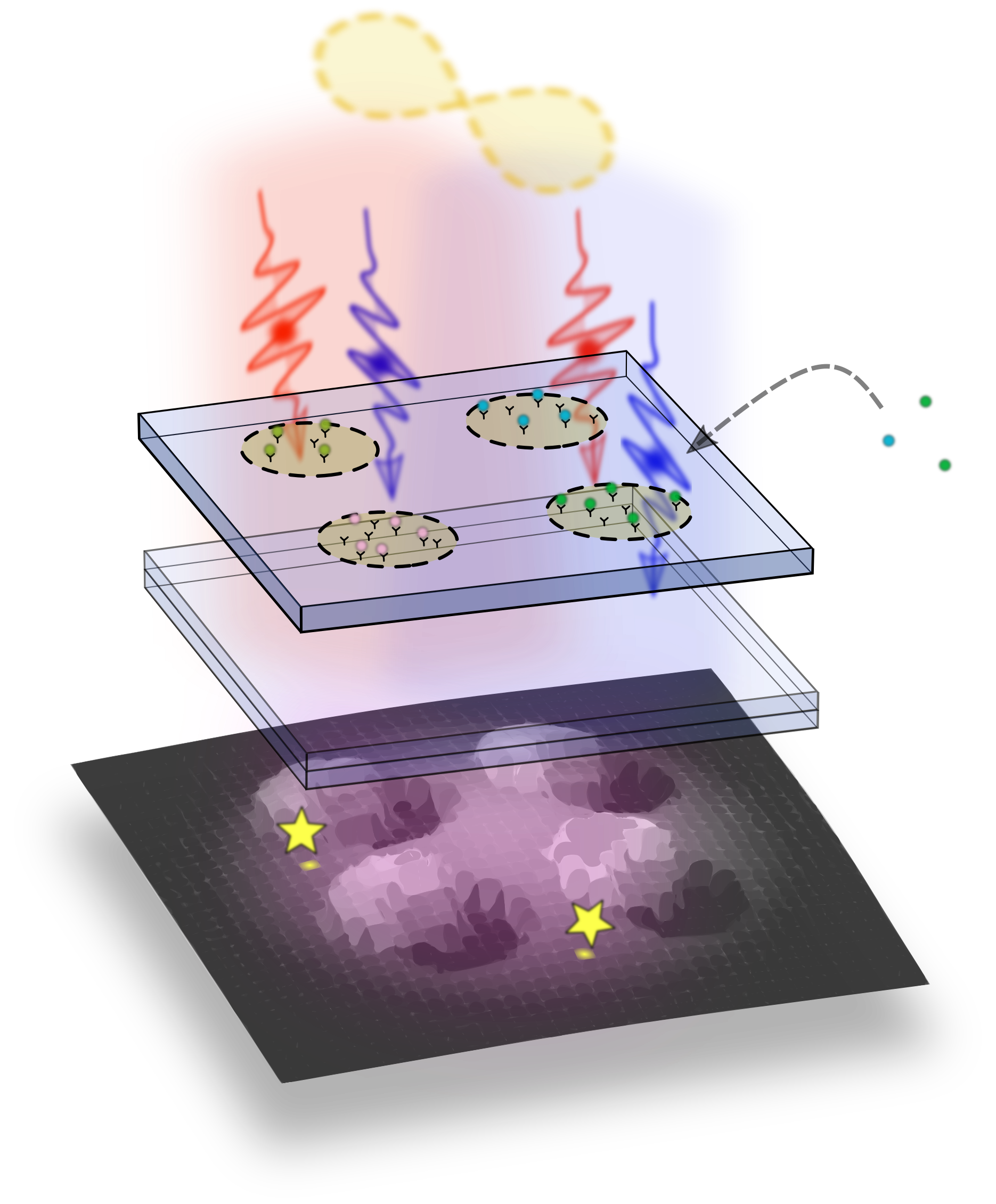Quantum-enhanced on-chip interference microscopy (QMIC)
Ultra-sensitive bio-sensing and bio-nanodevicesProject description
Q-MIC will aim to develop a new on-chip differential interference contrast microscope based on an unconventional birefringence lens-free configuration, with the latest quantum sources and single-photon image sensors. The Q-MIC platform will introduce a new type of interferometric microscopy without lenses and illuminated by quantum light, which will allow detection of ultrathin transparent materials, such as photosensitive cells and biological tissues, over large areas (several cm2), with unprecedented sensitivities (≈1 Å) and low powers (in the range of fW).
It is also an important goal of the project to facilitate that the quantum enhanced on-chip interference microscope be built with consumer components, especially thanks to the project’s effort in photonic and electronic integration of entangled photon sources and single photon avalanche diode image sensor arrays. This would extend the impact well beyond the scientific interests and lead to portable, high throughput, non-invasive, and label free sensing of transparent objects, such as cells, micro-organisms, viruses and proteins. For example, microarrays of biomarkers with millions of spots could be read in a single shot, with no need of fluorescence marking.
ICFO groups associated with the project
ICFO publications associated with the project
No publications associated to this project
External collaborations
Rupert Ursin (IQOQI/Austrian Academy of Science), Federica Villa, Franco Zappa and Alberto Tosi (Politecnico di Milano), Daniele Faccio (University of Glasgow), Fabian Steinlechner, Erik Beckert (Fraunhofer Institute for Applied Optics and Precision Engineering), Micro-Photon-Devices S.r.l., Carl Zeiss A.G.
Funding
This project has received funding from the European Union’s Horizon 2020 research and innovation programme under grant agreement No 801060.

